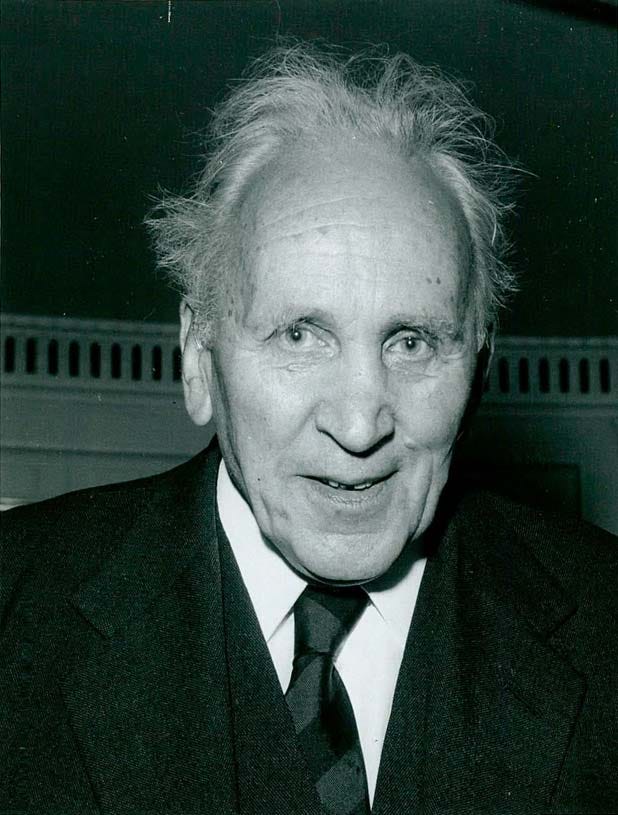From Blasphemy to Hate Speech (III. Sanctity & Atoms)
(Note: this essay is part of a series.)
Throughout a society’s life, the principal threats to its stability are invasion from outside, importation of cultural toxins from outside (in sane times, extremely unlikely), and rot from within. The third is perhaps the most interesting.
Among Europeans, especially Anglos, there are always individuals who will for various reasons rebel against their society’s mainstream. A mature society finds ways to handle these individuals - benefiting from them if possible, or keeping them fairly quiet, or even completely quiet. The goal is to limit their destructive potential to gradual change (if anything) and prevent them from implementing ruinous change or causing blind dysfunction. This is where the blasphemy law came in: preventing troublemakers from making too much trouble, from upsetting the majority and degrading that upon which society depended.
But to say that society “depends” upon anything abstract is a controversial remark today. For a very long time it was understood that Britain depended upon community and upon Christianity, and that the two were inextricably bound up together. It was also understood that Man cannot live on atoms alone; he needs something sacred, or to believe that something is sacred. He needs something that lifts him out of the everyday into some eternal or transcendental realm and reassures him about life, the Universe and everything. Principles aren’t enough, laws aren’t enough, riches aren’t enough. Comfort can be enough, because it tranquilises the need for transcendence by making the material realm very agreeable… but comfort never lasts long. Eventually, reality comes calling, and amidst the pain and struggle it imposes, it reminds us that we are not just meat, not just atoms.
This is why people need the sacred, and this is why society needs to protect the sacred. The nature of that protection will of course vary by society and people and circumstance, but it has to be there. There are other things that can be sacred to people but one of them is religion, especially if it is generally shared by most people around them. At that point it becomes a source of reassurance for each individual, even if he doesn’t particularly believe in it himself. However, if it can be degraded, if his society allows the sacred thing to be blasphemed against, then the individual is first disturbed but then gradually concludes that the thing must not actually be sacred at all - and then we end up with 2020s Britain.
In my opinion, the proximate reason for abolishing the blasphemous libel offence was to make way for multiculturalism (enforced with hate speech laws), but either way there was another factor at play which enabled this to happen at all: the British Establishment was no longer Christian and no longer wanted the public to be Christian.
That is a bold statement, but I believe it is the only one borne out by the facts of what the Establishment did. It certainly no longer took seriously the idea that the public’s Christian feelings should be protected, their Christian faith respected, even though doing so would be necessary in order to protect their dignity. You are not taking ordinary people seriously and protecting their dignity if you are allowing that which is sacred to them to be openly mocked.
Of course some of the operators in this would have been malicious, driven by loathing of Europe, England, hierarchy, the white race, Western civilisation, Christianity, or religion in general. But I am sure a lot of them had quite benign intentions. I think most people in academia simply no longer understood (by 1985 when the Law Commission published their report) what was necessary for a healthy society.
I picture a 1980s middle-class thirty-something academic woman - not a crazed SJW like her daughter will be, but far from her grandmother’s turgid Christian piety which she winces to recall. Such individuals were concerned with building a “better” society, one that did not discriminate and was not shackled to “superstition”. They meant well, but had lost touch with the human condition. They had forgotten that people need sanctity, or more likely had persuaded themselves that they don’t. They probably believed that people should - and therefore would - find sanctity “in each other”, and in sharing, and in learning, etc. The wishy-washy platitudes are endless and we could get lost in mocking them today, but they must have seemed sophisticated in 1985.
But such academics, though they did the deeds, were not the engineers of the thinking which justified the deeds. In other words, they had not designed their own worldview. Rather, it was bestowed upon them by the financial centres who decree how the world will evolve, and channel money into certain academic departments and studies and inquiries. I am sure there was also a measure of historical circumstance in the mix - the kinds of massive societal shifts that not even Blackrock can control - but even then, how things evolve still depends, in the end, upon real decisions made by real people.
With that introduction, we will now look at some of the remarks made in the House of Lords during the 1978 debate about abolishing the blasphemous libel offence. This will be explored again in a later chapter. Here I will focus on the remarks in support of retaining the offence. They centre around the idea that sanctity is important to people and to civic life.
The Earl of Lytton:
I have had a slight hand from time to time in checking blasphemy and encouraging a spirit of reverence.
He gives three examples - one from his school days, one from his army days, and one regarding workmen on his estate - all illustrating that blasphemy damages social order, and that other people sought (in his lifetime) to avoid, if possible, individuals who were known for it.
there is always in communities, especially when a lot of men are together, a struggle between the foul-mouthed and the clean-minded, and if the foul-mouthed have their way a kind of Gresham’s Law operates and the bad drives out the good, and the whole body is rather corrupted.
This is the sort of wisdom which progressives, during my youth in the 1990s, scoffed at. They would say there is no totality to damage, no social order to assault, therefore we can inject whatever toxins we want into the mix without fearing - or being responsible for - negative outcomes. Yet, in 2024, who can honestly say that they do not see the truth of it? Even progressives have now switched to the opposite stance, seeing “hate” as a toxin that has all sorts of unpredictable negative effects, multiplying like a virus once injected into the community, and thus threatening the social order. Meantime, for the same reason, conservatives now say things like “Mary Whitehouse was right”. For both conservatives and progressives, the liberal experiment has utterly failed. Nobody wants an orderless life.

Decades ahead of his time, Baron Willis refers to this need for order in 1978. But he does it in a cack-handed way, justifying the forthcoming order with reference to the old order:
Those involved in [the NVALA] are like quicksilver when they believe that our morals are being undermined by a television programme; but on the greater obscenities which stain our society - racism, for example - they retreat into silence. I believe, and many would agree, that racism is a greater threat to Christianity or to any other faith than a poor poem published in an obscure but responsible journal.
He doesn’t explain how racism is a threat to Christianity. He is just trying to persuade Christians to fight racism while allowing blasphemy. Ludicrous, but unsurprising in a Communist.




